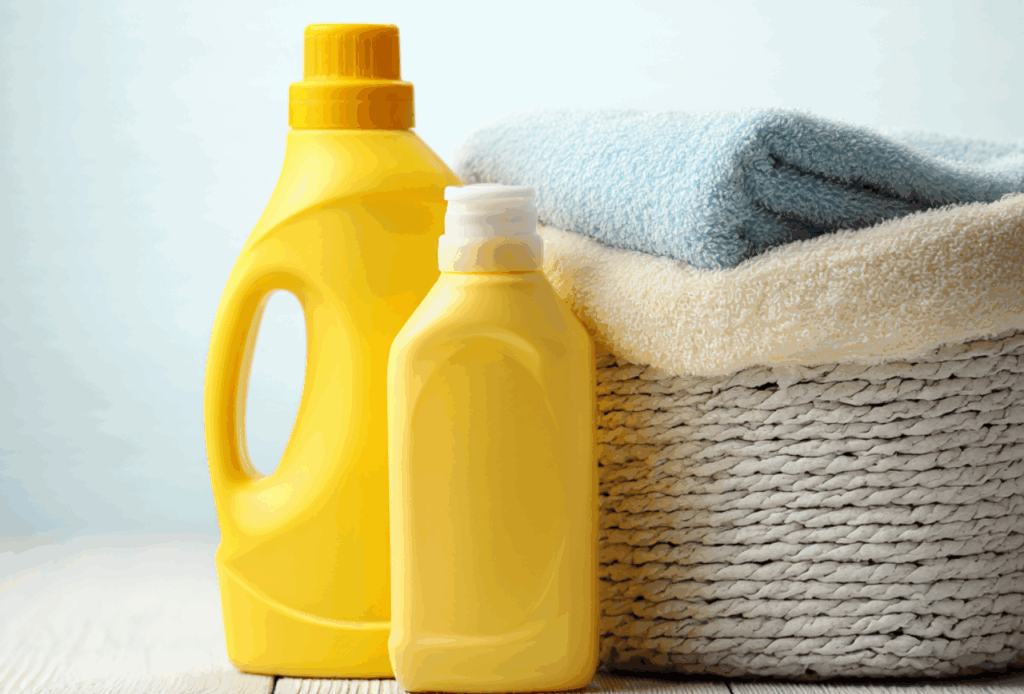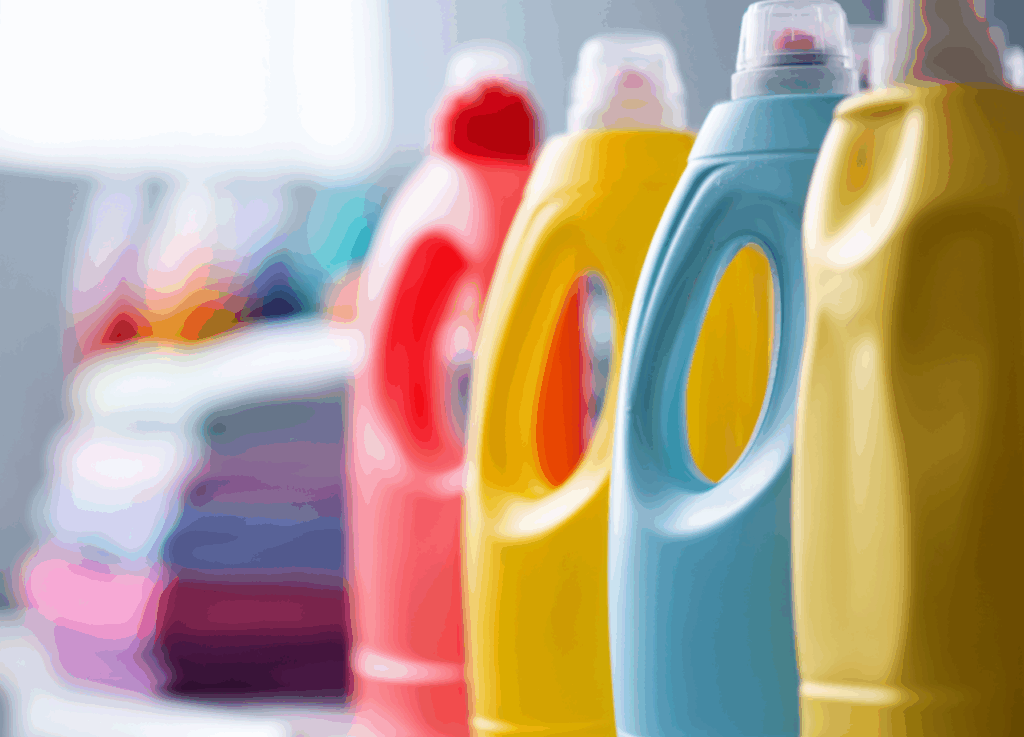Should You Use a Fabric Conditioner with Every Load? Here's the Answer

Laundry detergent, bleach, and fabric conditioners are the staples most of us grew up using without question. Sorting lights from darks, adding a splash of softener at the end — it's a routine we were taught early on and followed without a second thought.
But then came the questions. Does fabric conditioner really help your clothes, or can it actually wear them down? Is it safe for every load, or are there times it does more harm than good?
Turns out, the answer depends on what you’re washing. Different fabrics, finishes, and even wash cycles respond uniquely to softeners. So before you add that next capful, let’s explore when it actually helps, and when it doesn’t.
What Fabric Conditioner Does for Your Clothes
Fabric conditioner gets praised for leaving laundry soft and fresh, but if that’s all you think it does, you’re missing half the story. A lot of people use it out of habit, pour, rinse, repeat, without realizing the chemical work happening behind the scenes.
And while it can be a game-changer for the right fabrics, it’s not just about scent and softness. So, depending on what you’re washing, fabric conditioner might be preserving your fabrics or quietly wearing them out.
To help you understand how this product interacts with your fabrics, here’s a breakdown of what fabric conditioner actually does:
Helps Reduce Fabric Friction
Fabric conditioner coats the fibers of your clothes with a thin, lubricating layer. This reduces the rough contact between fabrics during agitation in the washer and tumble in the dryer. Less friction means fewer chances of pilling, fiber breakage, and premature wear.
Makes Fabrics Feel Softer
One of the most noticeable effects is the softening of fabrics, especially towels, T-shirts, and bed linens. Softeners relax stiff fibers, making garments feel more comfortable against the skin. This is especially helpful for cotton-heavy blends that tend to stiffen after repeated washes.
Cuts Down on Static Cling
In the dryer, fabrics rubbing together can create static electricity, especially synthetics. Fabric conditioner helps neutralize that charge, which keeps your clothes from clinging together or shocking you when you pull them apart.
Improves Ironing and Wrinkle Resistance
Because softeners relax fabric fibers, they can also help reduce creasing and wrinkling. This can make ironing a little easier and give garments a smoother look right out of the dryer, though the effect varies depending on fabric type.
Adds a Fresh, Long-lasting Scent
Sometimes, the scent is half the reason people reach for fabric conditioners. The fragrance can linger on clothes long after the wash, especially when stored properly. But while it smells nice, keep in mind this isn’t always a win for people with sensitive skin.
Can Affect Fabric Performance (For Better or Worse)
Some conditioners can interfere with the breathability or moisture-wicking ability of performance fabrics. While it might improve softness, it can reduce how well athleticwear handles sweat or heat. This is one reason why knowing what you’re conditioning is just as important as knowing how.
When Is It a Good Idea to Use a Fabric Conditioner?
There are definitely situations where using a fabric conditioner makes your laundry feel better, look fresher, and even last longer. If you’re washing casual clothes, soft home linens, or anything cotton-heavy, a light dose of conditioner can improve comfort and help fabrics wear more evenly. It's especially helpful when you line dry clothes, since air drying tends to make fabric fibers stiff or rough. But again, the trick is knowing which loads benefit from it, and how much to use.
Here are the situations where using a fabric softener actually works in your favor:
When You Wash Towels for Comfort, Not Performance
If you wash decorative towels or bath sheets meant more for luxury than absorbency, softener can enhance softness and scent. Just avoid using it on towels you rely on for drying off post-shower — conditioners can reduce absorbency over time.
When Laundering Natural Fabrics Like Cotton or Linen
Clothing made from 100% cotton or linen tends to feel rougher after repeated washes. A small dose of fabric conditioner can help keep these materials feeling soft and wearable without compromising their structure.
When Caring for Bedding and Sheets
Softeners can add that hotel-like softness to sheets, pillowcases, and duvet covers, especially if they’re cotton or cotton-blend. It’s a good move if you’re looking for that smooth, cozy feel after a long day.
When Reducing Static on Synthetics
Polyester and other synthetic fabrics are notorious for holding static. Fabric conditioner can help reduce that cling, making clothes more comfortable to wear and easier to manage post-dryer.
When Washing Heavily Used Items for Everyday Wear
For basics you wear on repeat, such as T-shirts, casual joggers, or loungewear, fabric conditioner can help minimize pilling and keep them feeling soft through multiple washes. Just make sure they’re not performance fabrics.
When Freshening Up Closet or Drawer-stored Items
If you’re doing a laundry cycle for clothes that sit folded or stored for a while, such as seasonal garments or guest bedding, fabric conditioner can give them a softer feel and that clean, fresh scent with which you want to be welcomed.
If your laundry fits into one of these categories, go ahead and use fabric conditioner. Just follow the product’s instructions and avoid over pouring.
When Should You Skip Fabric Conditioner Entirely?

Despite its perks, fabric conditioner isn’t always ideal. In some cases, it can clog fibers, ruin a garment’s performance, or even shorten the lifespan of what you're washing. If you've noticed towels getting less absorbent or your favorite yoga pants losing their stretch and breathability, the softener may be to blame.
Here's your guide to what types of laundry should skip the softener:
- Performance or Moisture-wicking Fabrics. Athleticwear, leggings, and running tops rely on water-repellent technology. Softener blocks those properties, leaving clothes feeling sticky and less breathable.
- Towels and Washcloths. While it may seem counterintuitive, fabric conditioner actually reduces a towel's absorbency by leaving behind a waxy coating. Over time, that coating also traps mildew and odor.
- Flame-resistant Clothing. Many children’s pajamas and certain work uniforms are treated with flame-resistant materials. Fabric softener can interfere with those finishes and reduce their safety.
- Delicate Natural Fibers (Wool, Silk, Cashmere). These materials are easily damaged by the chemicals in the softener. The coating can weaken the fibers, cause matting, or alter their texture entirely.
- Microfiber Cleaning Cloths and Mops. These are designed to attract and trap dust, oil, and grime. Fabric conditioner coats the fibers, making them far less effective at cleaning.
If you’re unsure whether something can handle a softener, it’s always safest to check the garment care label or ask your local dry cleaners for guidance.
From Towels to Performance Wear, Family Time Cleaners Keeps Them Soft and Fresh!
If you’re unsure whether your home laundry routine is helping your clothes or slowly wearing them down, turn to the experts at Family Time Cleaners. From proper fabric sorting to using eco-friendly products for delicate pieces, everything we do is designed to protect your wardrobe and give you back precious time.
We wash and fold everything from everyday staples like T-shirts, jeans, sweaters, and casual dresses to your family’s basics — baby clothes, school uniforms, pajamas, socks, and towels. We also specialize in dry cleaning, alterations, area rug cleaning, wedding dress preservation, and even shoe and boot repair and cleaning.
Call us at 662-667-6874 or stop by one of our locations in Greenwood, Winona, or Grenada.
What Our Customers Are Saying
Meet Michael,
Our Route Manager!















